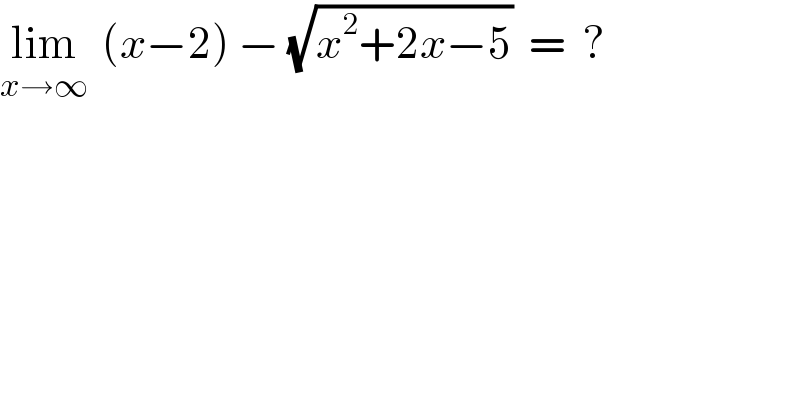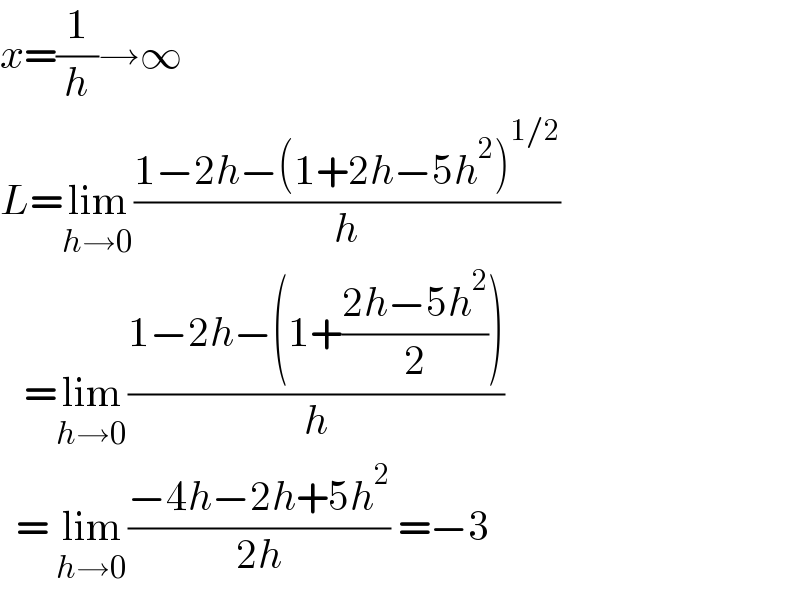
Question and Answers Forum
Question Number 164266 by naka3546 last updated on 15/Jan/22

Answered by ajfour last updated on 15/Jan/22

Commented by naka3546 last updated on 15/Jan/22

Answered by cortano1 last updated on 16/Jan/22

Commented by naka3546 last updated on 16/Jan/22

